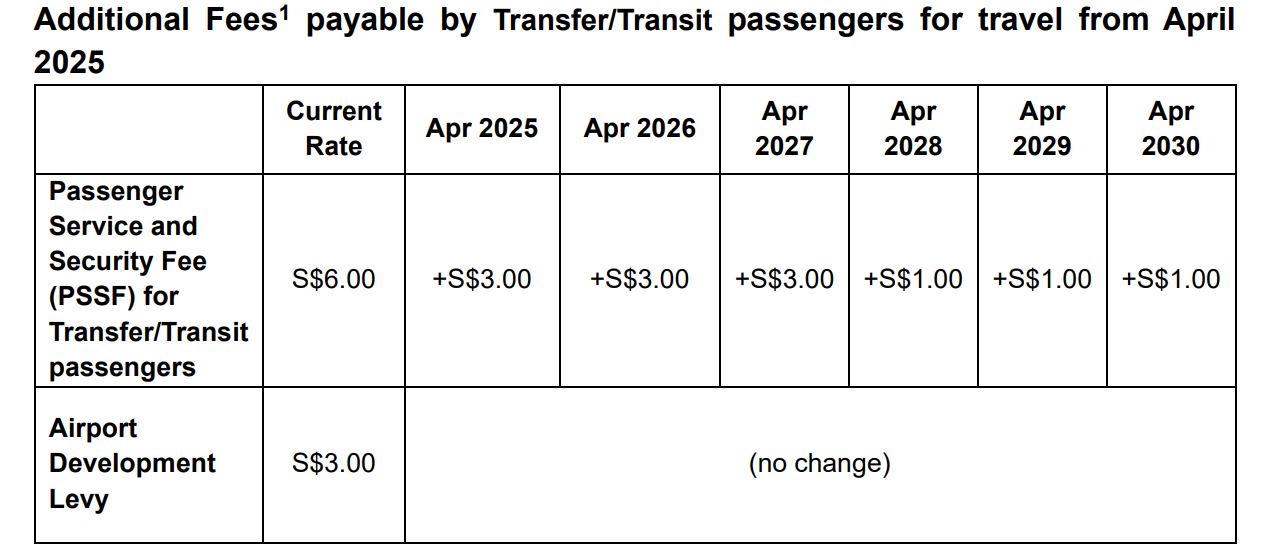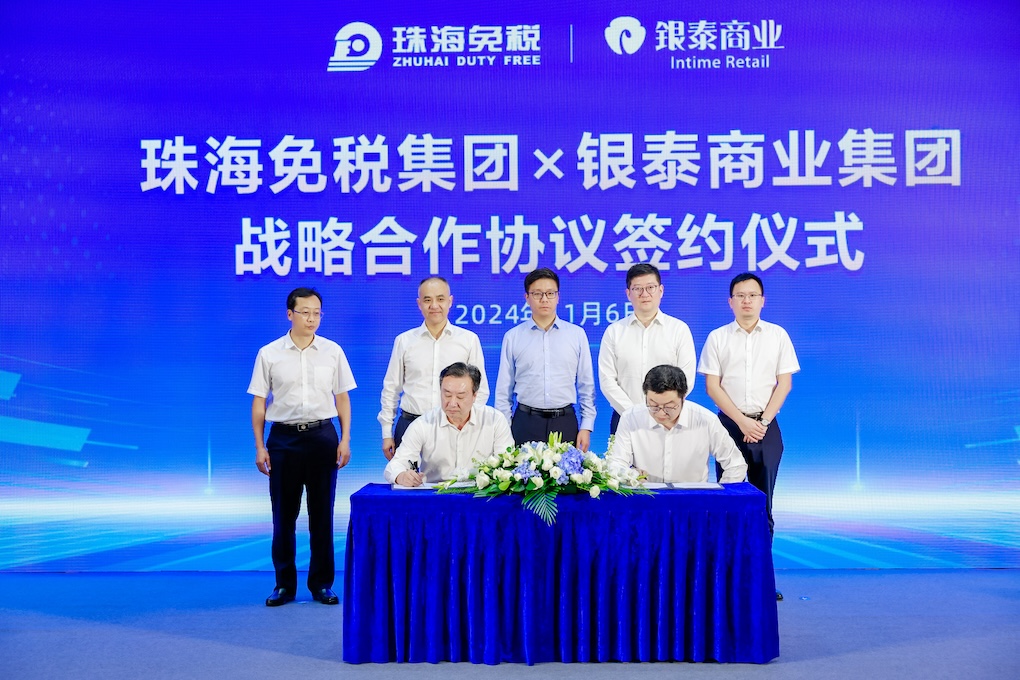SINGAPORE. Changi Airport Group has announced it will allocate S$3 billion (US$2.27 billion) over the next six years to enhance services across Changi Airport terminals 1 to 4.
Key upgrades will include improvements to baggage handling, check-in and immigration processes and Skytrain connectivity between terminals. The project will also replace outdated systems to enhance operational efficiency and the overall passenger experience.
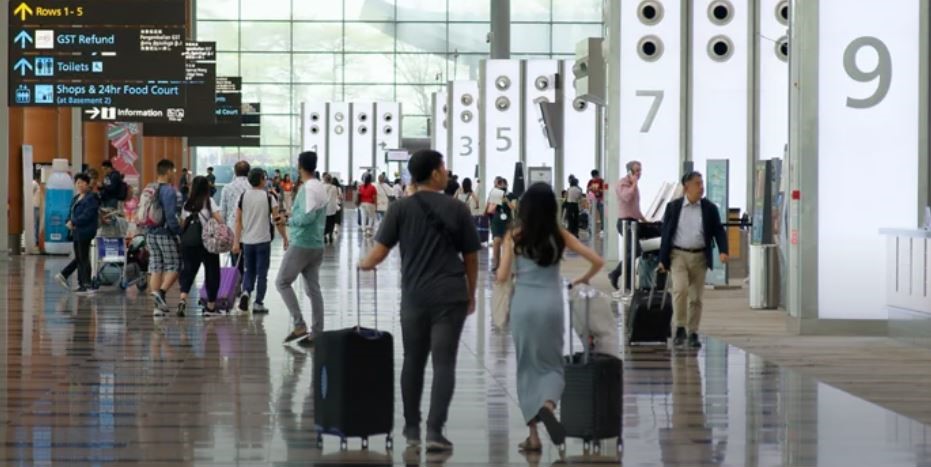
Another key focus will be the enhancement of T3, which will create opportunities to elevate Changi’s retail offerings.
The investments will reinforce Changi Airport’s status as one of the leading airports in the world, and address the increasing demand for air travel before T5 is operational in the mid-2030s, the airport company noted.
The planned upgrade will also require higher airport costs between 2025 and 2030 to support these investments and cover rising operational expenses, including manpower.
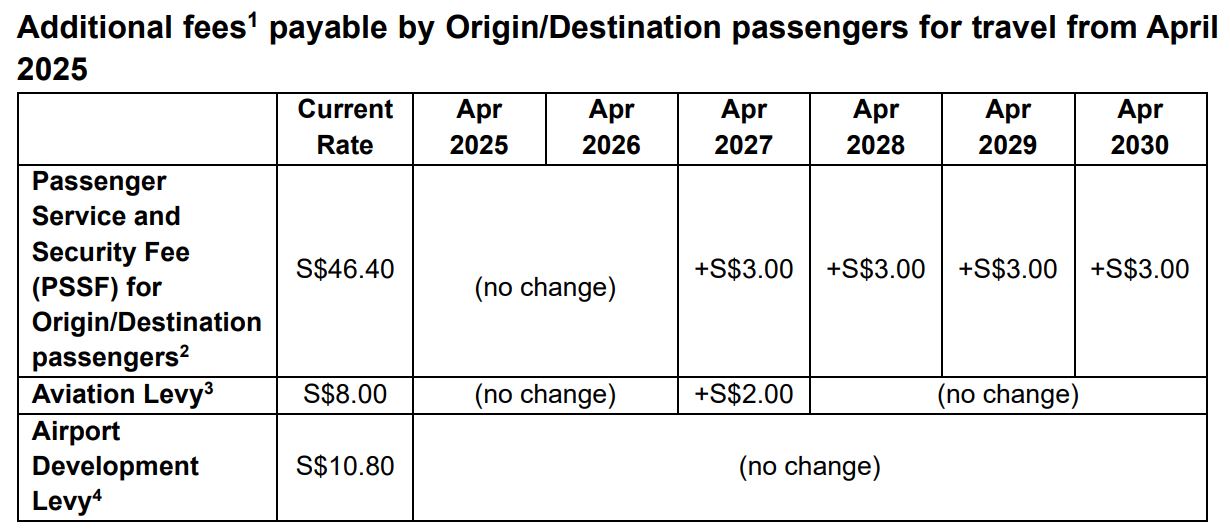
These additional fees will help recover substantial investments made during the COVID-19 pandemic, including the T2 expansion and T3 check-in upgrades, when passenger fees and airline charges were frozen and planned fee hikes were delayed.
To help airlines adjust, a -50% discount on the increase in landing, parking and aerobridge (LPA) charges will be offered for the first six months.
Based on current ticket prices, passenger fees for economy tickets on most flights departing from or connecting through Singapore are expected to increase by around +1% or less.
The Civil Aviation Authority of Singapore (CAAS) will team up with CAG to oversee the air hub’s performance, allowing prompt responses and further adjustments to maintain its competitiveness.
Paving the way for future growth and innovation
The airport company’s S$3 billion investment programme includes:
Rejuvenation of Skytrain subsystems: Changi Airport will replace various Skytrain subsystems, including signalling and communications, in use since 2008 and now reaching the end of their operational lifespan. The addition of new cars will help expand capacity, ensuring improved performance until the system undergoes a complete overhaul in the late 2030s.
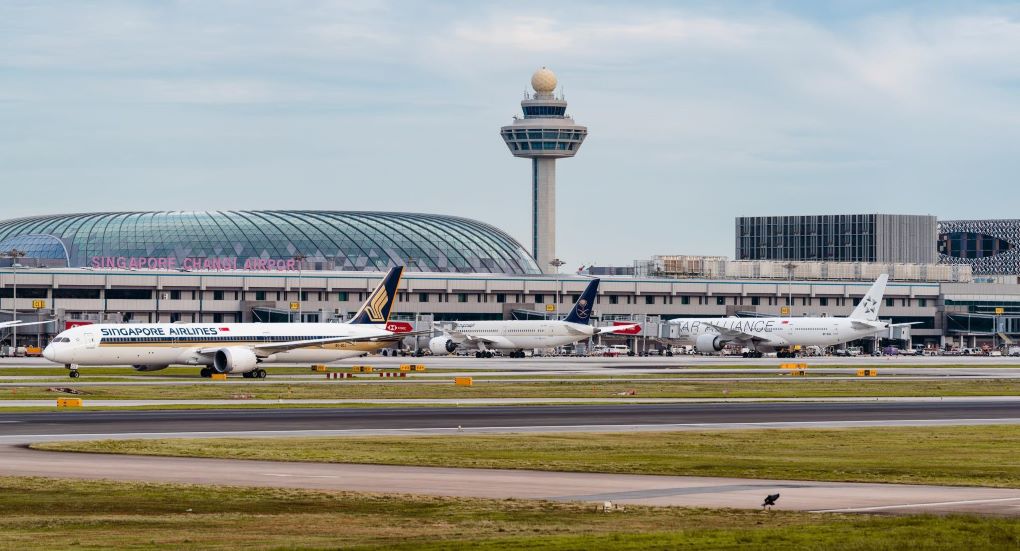
Upgrading of T3 baggage-handling system and the new T1 to T3 inter-terminal baggage conveyance system: Changi Airport will modernise its T3 baggage-handling system to boost capacity, energy efficiency and resilience. The upgrade will feature a complete overhaul of the early-bag-storage subsystem, increasing its capacity +65%.
A new rooftop inter-terminal baggage conveyance system will be installed between terminals 1 and 3, providing an alternative pathway for baggage transfer. This will help ease congestion on the current underground system and reduce the need for manual baggage movement.
More check-in rows in T4: A new check-in row is being built on T4’s departure level equipped with fast and seamless travel facilities, including self-service kiosks and automated bag drops. These will improve check-in capacity by +15%, accommodating up to 2,500 passengers per hour.
Expansion of T1 Arrival Immigration Halls: Operational capacity in T1’s East and West Arrival Immigration Halls will be expanded by almost +60%, significantly enhancing passenger flow and streamlining the clearance process. Along with the Immigration & Checkpoints Authority’s New Clearance Concept, passengers can expect an even better arrival experience at T1 in the future.
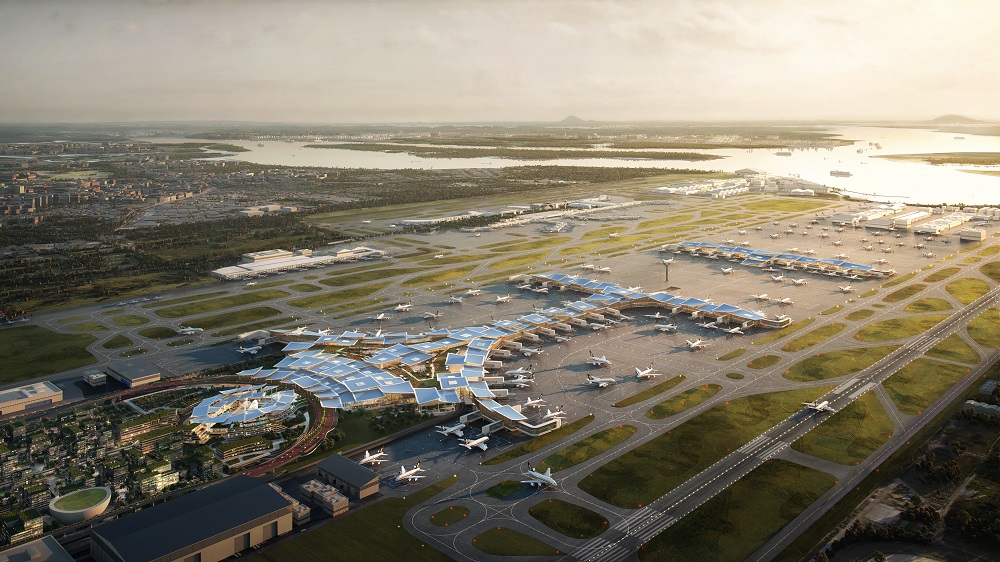
Strengthening of airside infrastructure: The Boeing B779 series is slated for deployment in global airline fleets when it begins operations in 2026. As the longest twin-engine aircraft ever built, it will put significant strain on airport pavements with its heavy wheel load.
While Changi Airport’s facilities are generally equipped for the B779, certain taxiways and contact stands will undergo improvements, with 39 additional stands across the terminals, capable of servicing the aircraft.
Construction of new airside facilities: CAG is planning to optimise the airport’s parking infrastructure with new remote stands to accommodate both passenger and cargo aircraft, increasing the number of stands to over 200.
To enhance connectivity, the taxiway will be extended, linking the new facilities across to the rest of the airport and addressing the growing parking demand.
New smart systems will be introduced to minimise delays in aircraft turnaround, enabling airlines to optimise their operations with greater precision.

Refurbishment of T3: CAG is set to modernise T3, which will be more than 20 years old by 2030. This will allow for an elevated passenger experience and boost retail offerings at the airport.
With the safety and wellbeing of airport workers in mind, CAG is also set to invest in additional staff facilities, including refresh pods to mitigate heat stress, enhancements to lightning shelters to protect staff during inclement weather, and improved staff lounges and rest areas.
To boost employee productivity and provide upskilling opportunities for ground staff, the company is exploring new initiatives such as AI-powered security screening and greater automation in ground handling, including the introduction of autonomous vehicles on the apron.
Increase in airport charges and Aviation Levy
The key revisions are as follows:
For passengers:
Origin/Destination (OD) passengers departing from Changi Airport: Passenger Service and Security Fee (PSSF) for OD passengers, presently S$46.40 (US$35), will remain unchanged for two years until 31 March 2027. It will then increase by S$3 (US$2.27) annually for four years from 1 April 2027. The fee increase per departing flight from 1 April 2027 is about 1% of an economy class ticket to Bangkok, and less than 0.5% of an economy class ticket to Tokyo or London, assuming today’s ticket prices.
Transfer/Transit (TT) passengers connecting at Changi Airport: PSSF for TT passengers, presently S$6 (US$4.50), has remained unchanged since 2015. It will increase by S$3 (US$2.27) annually for three years from 1 April 2025, and S$1 (US$0.76) annually for the next three years. The fee increase per transfer from 2025 is less than 1% of an economy-class ticket from London to Sydney, with a connection at Changi Airport. The price adjustments for TT passengers will apply to air tickets issued from 1 January 2025, for travel from 1 April 2025.
For airlines:
LPA charges: LPA charges for airlines operating at Changi Airport will be adjusted annually from 1 April 2025. The LPA charge for a narrow-body A320 aircraft, presently around S$1,200 (US$908) per landing, will increase annually by an average of S$110 (US$83) per landing for the first three years, and an average of S$65 (US$49) per landing for the next three years.
The LPA charge for a wide-body A350 aircraft, presently around S$3,600 (US$2,724), will increase annually by an average of S$290 (US$219) per landing for the first three years, and an average of S$190 (US$144) per landing for the next three years.
CAG and CAAS have engaged major airlines on the revisions to the airport charges. To help airlines with the transition, CAG will provide a 50% rebate on the increase in LPA charges for six months, from 1 April 2025 to 30 September 2025. More information will be shared with airlines subsequently.
CAAS will continue to work with the aviation eco-system, including the airport operator, airlines, ground handlers and other companies, and aviation professionals to grow the Singapore air hub, including through enabling policies, regulations and infrastructure; safety oversight; and new capabilities in sustainability, innovation, manpower development and cybersecurity.
The Aviation Levy which finances CAAS’s operations, presently S$8 (US$6) for OD passengers, will remain unchanged until 1 April 2027, when it will see a one-time increase of S$8 (US$5) to S$10 (US$8).
CAAS and CAG have underlined their commitment to expanding Changi’s network from approximately 160 city links today to over 200 by the mid-2030s. With more than 100 airlines already operating from Changi Airport, both agencies will continue their partnership with airlines dedicated to the Singapore hub to support their network expansion plans. ✈






